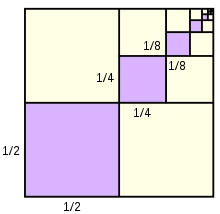Factorial division remainder
Find the remainder after division when we divide the sum of 1! +2! +3! +. ... . +300! number 13.
Final Answer:

You need to know the following knowledge to solve this word math problem:
algebraarithmeticbasic operations and conceptsGrade of the word problem
Related math problems and questions:
- Remainders
 It is given a set of numbers { 200; 261; 331; 345; 487; 554 }. Divide these numbers by number 80 and determine a set of remainders. As a result, write the sum of these remainders.
It is given a set of numbers { 200; 261; 331; 345; 487; 554 }. Divide these numbers by number 80 and determine a set of remainders. As a result, write the sum of these remainders. - Number sum division
 The sum of the numbers is 878. If we divide the larger number by the smaller one, we get a ratio of 6 with the remainder of 17. What are the numbers?
The sum of the numbers is 878. If we divide the larger number by the smaller one, we get a ratio of 6 with the remainder of 17. What are the numbers? - Number division proportion
 Divide number 74 by 9, and find the proportion and the remainder. How much do we have to reduce the number 74 to halve the proportion and increase the remainder three times?
Divide number 74 by 9, and find the proportion and the remainder. How much do we have to reduce the number 74 to halve the proportion and increase the remainder three times? - Remainder even sum
 If we divide numbers by a divisor of 15, we get several different remainders. Write the sum of all possible even remainders that we get this way.
If we divide numbers by a divisor of 15, we get several different remainders. Write the sum of all possible even remainders that we get this way. - My 4
 My 4-digit number is a palindrome; it has a remainder of 21 when you divide it by 100. what is my number? A palindrome is a number that does not change if you write it backward.
My 4-digit number is a palindrome; it has a remainder of 21 when you divide it by 100. what is my number? A palindrome is a number that does not change if you write it backward. - Division remainder calculation
 Find the number that, when divided by 28, gives the ratio 606 and the remainder 23.
Find the number that, when divided by 28, gives the ratio 606 and the remainder 23. - Result and remainder
 After dividing the unknown number by the number 23, the quotient 11 and the remainder four are formed. Find an unknown number.
After dividing the unknown number by the number 23, the quotient 11 and the remainder four are formed. Find an unknown number.
